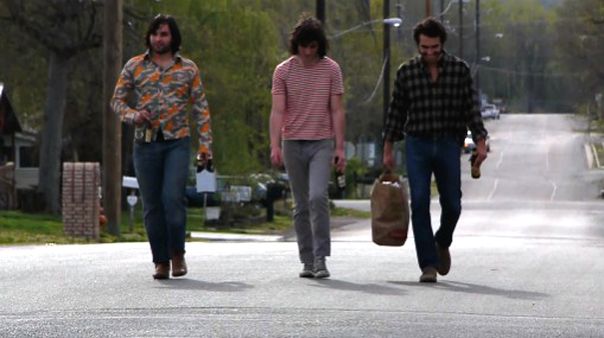Sing a Song from Home
Patricia Kaiser from the Talent Press Buenos Aires 2011 finds Alberto Fuguet's COUNTRY MUSIC to be a touching and brillantly acted city-road movie about a Chilean in Nashvill.

COUNTRY SONG
There are many reasons to leave one’s country. Love can be one of them. But are there reasons not to return? Self-discovery could be one of them. Alejandro Tazo is trying to find the answer to that question.
Having arrived in the United States, and being dumped by an American girlfriend, with whom he had experienced the typical romance between a foreigner and a Chilean citizen, Tazo decides to settle in Nashville to try his luck and discover the world. In truth, Tazo has no direction or plan for the future. All that’s clear is the resentment he feels about his girlfriend, and the fact that he does not want to return to his home country in such emotional turmoil.
But what can he do in Nashville? He starts by looking for a cheap place to live. Then, he tries to find work, cleaning toilets in a hotel, doing some plumbing and working as a salesman at a music store. Music is one of his passions. The city poses challenges. He decides to explore its hidden corners in an attempt to find answers to the million questions that crowd his head. Charm is his best tool.
In a strange way, the film has a road movie feel; perhaps we could call it a city-road movie. The protagonist wanders around the city spaces, the bars and its people. He tries to blend into a culture that is so alien to him; a culture he both hates and loves. Contrary to travel films, it is not the environment, but the traveller that changes here. The city remains the same.
Tazo wants to be accepted by a society that he does not entirely like. He changes his body and his clothes. This ultimately portrays him as a pathetic figure desperately looking for acceptance (or perhaps trying not to stand out). His English is poor, and he goes to school to improve it. But his brain is usually tired and prefers to switch back to his mother tongue. Tazo is actually between two stools. He is suffering the pain of having been uprooted.
Fuguet shows this feeling through a couple of excellent dialogues between Tarzo and a waitress and some of his roommates (he rents a coach in a house), as well as through long silences and actions by the protagonist. The way he moves around the city, or the places where he lives, suggest that he does not long for his previous life, but for a life he is still unable to figure out.
The first 15 minutes of the film are evidence of this. There are no dialogues, and the focus is placed on Tazo, his gestures and the choices he makes, to show his need to have a home (the way he organizes his toiletries in the bathroom of the first house is revealing). The director’s intention is also disclosed by the staging. The long shots (some longer than three minutes), the extensive silences, and the slow motion of the camera (because Tazo is really not moving anywhere) express much more than the (few) words of the protagonist and the passing characters he encounters.
In the end, Tazo discovers that he has always carried his country with him. At a “bring-your-guitar-and-sing” type of bar, he declares himself to be Chilean and sings a song from his homeland, in Spanish, which defines his entire life, and his goal. As expected, the streets of Nashville are waiting for him for another night of rounds.
Pablo Cerda’s excellent performance in the role of Tazo is something to celebrate. The whole movie is on his shoulders, and he carries it to the end. Also, the soundtrack and the sound design are excellent. The melody during credits is unforgettable, at least for me.

